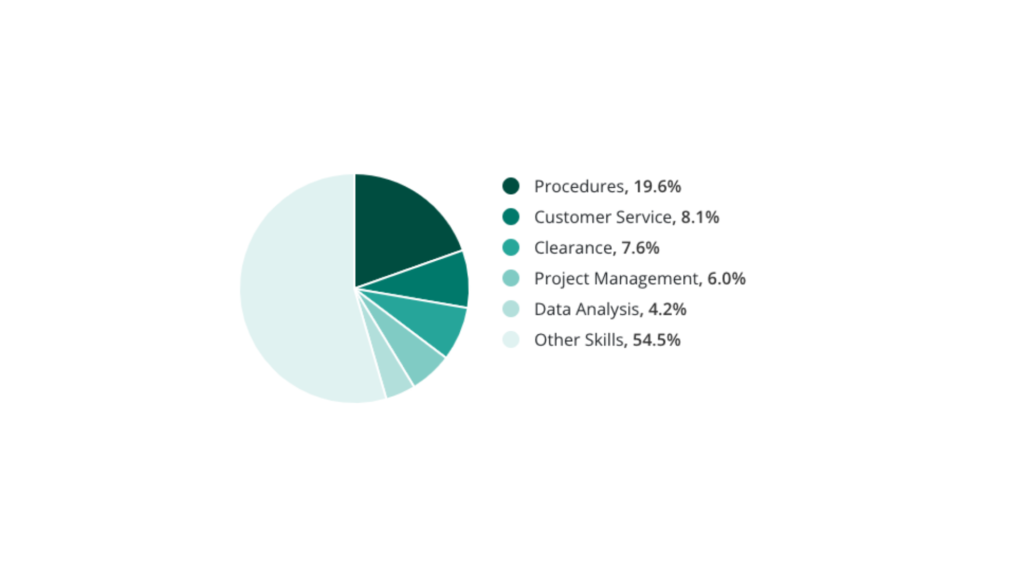A management analyst, or management consultant, works with an organization’s management teams to improve various aspects of the business. Management consultants analyze operations and identify ways to increase efficiency and profit. Their main duty is collecting data about how a company works and recommending changes to decrease costs and boost revenue.
As a management analyst, you’ll often collaborate with clients, vendors, employees, and executives to identify the strengths and weaknesses of the company. You’ll typically work in an office setting during regular business hours. However, frequent travel may be required to meet clients and attend conferences. Your suggestions for organizational changes for staying competitive in the market may be presented in written reports or oral presentations.
To work in the field of management analysis, you’ll usually need a bachelor’s degree, preferably in business, economics, political science, or a related field. Earning a master’s degree in business administration (MBA) or becoming a certified management consultant may improve your job prospects. To be successful, you must have excellent analytical and organizational skills and the ability to understand and implement constructive business strategies and principles. Working as a management analyst, you may earn a median annual salary of $76,000 along with a benefits package of health and life insurance, a retirement plan, vacation or sick leave, and bonuses for outstanding performance. You may also enjoy a robust job outlook. According to BLS, employment growth for management analysts is projected to increase by 14 percent over the next decade, much faster than the average for all occupations.
There is more than meets the eye when it comes to being a management analyst. For example, did you know that they make an average of $35.75 an hour? That’s $74,353 a year!
Between 2018 and 2028, the career is expected to grow 14% and produce 118,300 job opportunities across the U.S.
What Does a Management Analyst Do
There are certain skills that many management analysts have in order to accomplish their responsibilities. By taking a look through resumes, we were able to narrow down the most common skills for a person in this position. We discovered that a lot of resumes listed analytical skills, communication skills and interpersonal skills.
When it comes to the most important skills required to be a management analyst, we found that a lot of resumes listed 19.6% of management analysts included procedures, while 8.1% of resumes included customer service, and 7.6% of resumes included clearance. Hard skills like these are helpful to have when it comes to performing essential job responsibilities.
When it comes to searching for a job, many search for a key term or phrase. Instead, it might be more helpful to search by industry, as you might be missing jobs that you never thought about in industries that you didn’t even think offered positions related to the management analyst job title. But what industry to start with? Most management analysts actually find jobs in the technology and finance industries.
How To Become a Management Analyst
If you’re interested in becoming a management analyst, one of the first things to consider is how much education you need. We’ve determined that 65.8% of management analysts have a bachelor’s degree. In terms of higher education levels, we found that 16.2% of management analysts have master’s degrees. Even though most management analysts have a college degree, it’s possible to become one with only a high school degree or GED.
Choosing the right major is always an important step when researching how to become a management analyst. When we researched the most common majors for a management analyst, we found that they most commonly earn bachelor’s degree degrees or master’s degree degrees. Other degrees that we often see on management analyst resumes include associate degree degrees or high school diploma degrees.
You may find that experience in other jobs will help you become a management analyst. In fact, many management analyst jobs require experience in a role such as administrative assistant. Meanwhile, many management analysts also have previous career experience in roles such as internship or customer service representative.
Management Analyst Career Paths
In addition to switching up your job search, it might prove helpful to look at a career path for your specific job. Now, what’s a career path you ask? Well, it’s practically a map that shows how you might advance from one job title to another. Our career paths are especially detailed with salary changes. So, for example, if you started out with the role of business analyst you might progress to a role such as manager eventually. Later on in your career, you could end up with the title senior finance manager.

Average Salary For A Management Analyst
Management Analysts in America make an average salary of $74,353 per year or $36 per hour. The top 10 percent makes over $102,000 per year, while the bottom 10 percent under $53,000 per year.
Top Skills For A Management Analyst
The skills section on your resume can be almost as important as the experience section, so you want it to be an accurate portrayal of what you can do. Luckily, we’ve found all of the skills you’ll need so even if you don’t have these skills yet, you know what you need to work on. Out of all the resumes we looked through, 19.6% of management analysts listed procedures on their resume, but soft skills such as analytical skills and communication skills are important as well.







Recent Comments